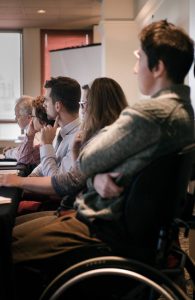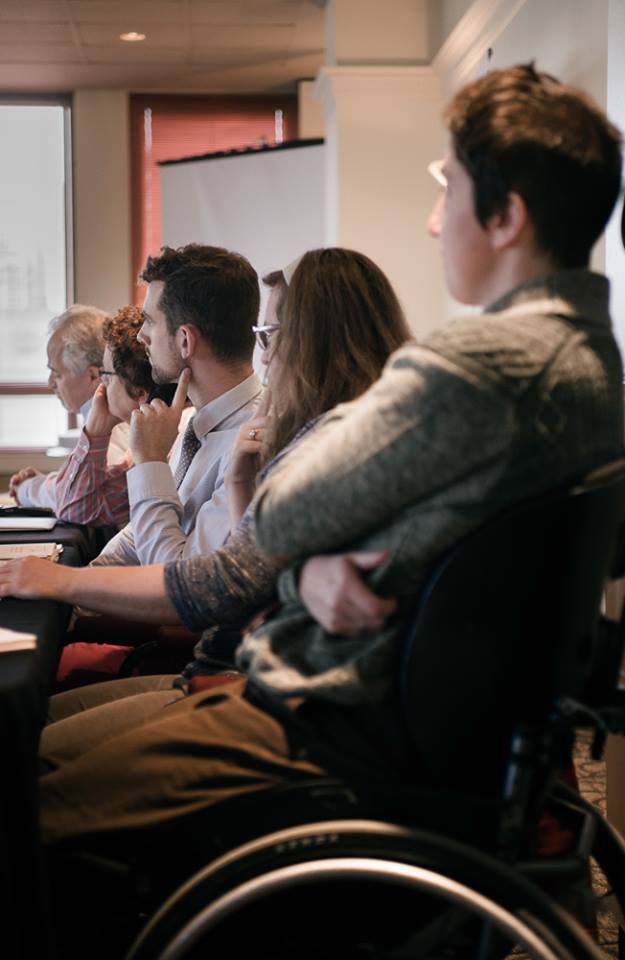Panelists discuss LGBTQ human rights movement
The cream of the crop in the field of LGBTQ studies united for the first time Monday for the Trudeau Foundation’s Imagining the Future of LGBTQ Human Rights conference at Concordia.
This two-day international seminar is bringing together notable experts in the fields of law, psychology, anthropology, and sociology to discuss the global LGBTQ human rights movement and the successes and challenges it faces.

“The Trudeau foundation supports research in four broad areas of public policy,” said president and chief Executive Officer of the Pierre Elliott Trudeau Foundation, Morris Rosenberg, during the introduction. “Human rights and dignity, Canada’s place in the world, responsible citizenship, and people and the national environment.”
Rosenberg introduced Concordia President Alan Shepard, who spoke briefly about the importance of this topic and his personal connection to it.
“This is a critical moment to be holding such a conference,” said Shepard. “While even as LGBTQ rights expand in some regions of the world, in other regions anti-gay sentiment and punitive action is shaping up to be even more intense that it has historically been. On these issues, the globe remains a patchwork.”
The Internationalization of LGBTQ Human Rights
The first lecture of the day was from Joke Swiebel. As a member of the European Parliament from 1999 to 2004, former vice-chairperson of the United Nations Commission on the Status of Women, and award winner for contributions to the national and international LGBT movement, Swiebel’s lecture focused on the importance of framing LGBTQ concerns as human rights issues.
“What it means to be lesbian and gay and etcetera is totally different in different cultures and times and places,” she said. “Therefore, I think the main goal of the movement should be not in the first place to safeguard the right of LGBTQ people or respecting sexual minorities as such, but safeguarding the rights of all people to decide truly about their sexuality and their intimate relations.”
Swiebel also warned against sweeping generalizations in regards to the improvement or worsening of the rights of LGBTQ society globally. “It very much depends on what you look at and where. It depends on your values, on your priorities.”
Colonial Legacies and Global LGBTQ Human Rights
Next came a discussion featuring four panellists debating the influence of the LGBTQ human rights movement and whether the movement was beneficial to the LGBTQ population or if it’s a new form of colonialism derived from this Western-lead ideological movement.
Fernando Chang-Muy, a Harvard Law School graduate and professor at the University of Pennsylvania School of Law, holds strong beliefs on the spread of the movement and its homophobic counterpart.
“Homophobia is a western import,” he said. “When the United Kingdom [left its former] colonies in Africa, they left behind sodomy laws which previously did not exist.”
Bangladeshi anthropologist and Trudeau Scholar Nehraz Mahmud agreed, citing dated British laws as the root of the homophobia problem in Bangladesh.
“The penal code is the most disturbing part that prohibits any kind of movement for the LGBTQ rallies,” she said. Mahmud also said that foreign governments and organizations should put more pressure on places like Bangladesh – both economically and politically.
However, David Paternotte, sociology professor at the Université libre de Bruxelles, warned about the risks that boycotts and economic action can have saying that sometimes these actions can “do more harm than good.”
Other Sessions
There was further discussion from other experts ranging from law school students to youth activists and even a former Canadian Supreme Court justice. Topics covered that afternoon included the Criminalization of LGBTQ Communities, LGBTQ Activists, and LGBTQ Rights in Western Democracies.
The conference will also feature more talks Tuesday on issues such as Trans* Realities and Human Rights Activism, Intersectional Approaches to LGBTQ Activism, and Imagining the Future of LGBTQ Rights.
The Imagining the Future of LGBTQ Human Rights conference continues this Tuesday, starting at 9:00 a.m. in room H-763.




